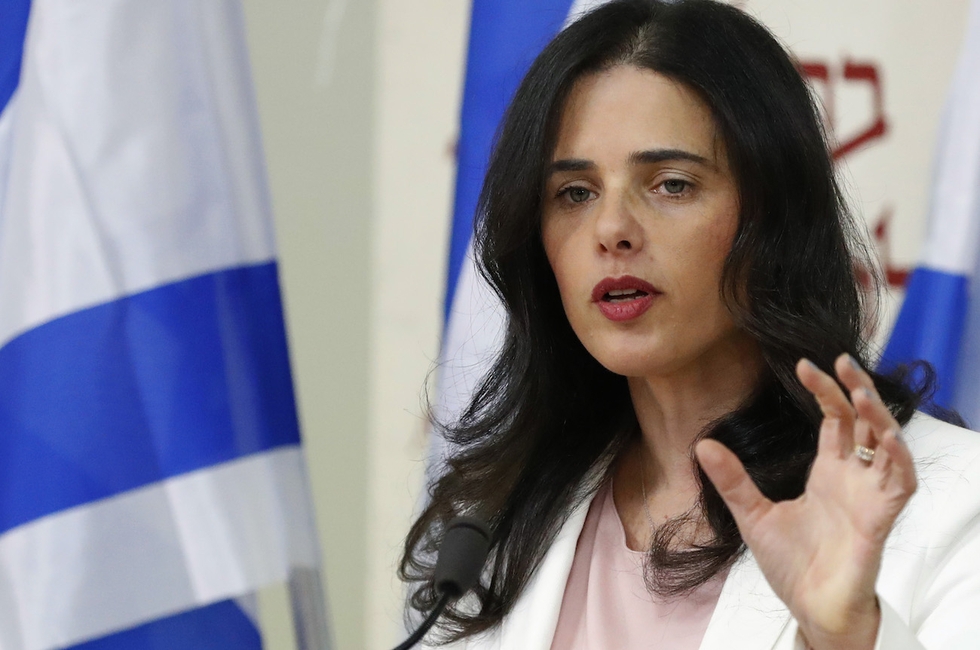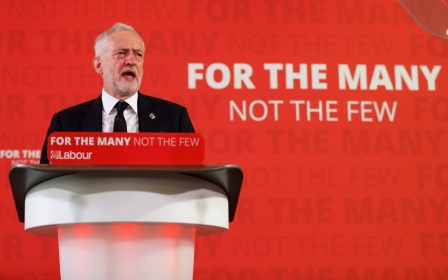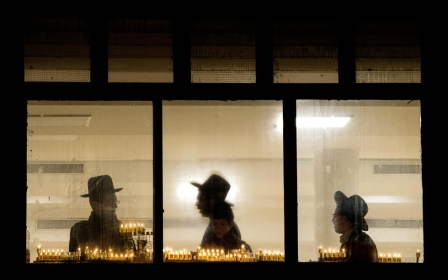Israeli press review: Ayelet Shaked attempts to seize the far right

Shaked makes play for right-wing leadership
Ayelet Shaked is in the news once again this week, after polls showed the former justice minister could more than double the Union of Right-Wing Parties’ seats in Israel’s parliament if she were to lead the grouping of far-right factions.
Shaked, who once belonged to one of the alliance’s member parties, the national-Orthodox Jewish Home party, last week took the helm of the New Right party she formed with Naftali Bennett.
On replacing Bennett, she called on the Union to merge with the New Right and strengthen their presence in the Knesset.
The New Right failed to pass the threshold of votes necessary to gain seats in the Israeli April election. With Prime Minister Benjamin Netanyahu unable to form a government, new polls are set for September.
New MEE newsletter: Jerusalem Dispatch
Sign up to get the latest insights and analysis on Israel-Palestine, alongside Turkey Unpacked and other MEE newsletters
The Union is currently headed by Rafi Peretz, a rabbi and former pilot who recently caused controversy over statements he made about conversion therapy for gays and over the annexation of the occupied West Bank and apartheid.
Shaked is received with mixed feelings by the religious far-right in Israel. The famous Rabbi Shlomo Aviner of Ateret Yeshiva in Jerusalem argued that women should not be involved in politics. Moreover, Shaked has said many times that she is herself not religious.
Polls indicate that many of the votes which Shaked can draw to the Union of the Right Parties would come from Netanyahu’s Likud party.
The prime minister’s wife Sarah Netanyahu, who is on bad terms with Shaked, spoke with Peretz’s wife and urged her not to allow the former justice minister to take the chairwomanship of the Union.
Peretz takes the Labor party to the right
Amir Peretz was elected as the new chairman of the Labor party earlier this month, and has already become the target of a series of critical articles by journalists, activists and politicians accusing him of diverting from the party’s path.
Attracting attention is Peretz’s invitation to centre-right politician Orly Levy-Abekasis to join the Labor Party. Ahead of the last election, Levy-Abekasis formed her own party called Bridge, running on a social-compassion platform; but her party failed to cross the threshold and gain Knesset seats.
Levy-Abekasis’ political career started with the far-right Israel Our Home party of Avigdor Lieberman, and many consider her to harbour very right-wing positions incompatible with the Labor party.
Peretz has also stated that Labor will under no circumstances merge with the left-Zionist Meretz party, nor with the new Israel Democratic Party recently founded by Ehud Barak.
The Labor leader did say, however, that his party would join Benjamin Netanyahu’s government if the prime minister is cleared of corruption charges by the attorney-general.
Labor’s former chairman Avi Gabai, as well as several key members of the party such as Omer Bar-Lev, have said that Labor will not sit with Netanyahu under any circumstances in the same coalition.
Cyprus rape case sparks debate on media coverage
The arrest of 12 young Israeli men in Cyprus on suspicion of raping a British tourist has sparked debate in the media over how the issue is portrayed in Israel.
Women rights activists have started a debate about what some refer to as a “rape culture” in Israel, saying youths are insufficiently educated on the limits of legal and legitimate sexual behaviour.
Commentators have pointed to the many cases of rape which have made the headlines in Israel recently.
Mainstream media channels, however, reported the story from an Israeli-patriotic perspective, and attempted to cast doubt over the victim’s testimony.
After telling jokes and making light of the accusations, one well-known reporter, Ronnie Daniel, had to issue a public apology after saying that “she was used to two or three, suddenly 12, this is the… crisis?”
Palestinians abandon Israel's higher education system
A new study by the Israeli finance ministry and the Herzliya Interdisciplinary Center shows that many Palestinian citizens of Israel have given up on attaining academic degrees in Israeli colleges and universities.
Systematic discrimination that leads to low acceptance rates among non-Jewish candidates has diverted thousands of students to study in the occupied West Bank or in foreign countries.
The Israeli Council for Higher Education boasted last year that the number of Arab students had increased by 82 percent in a decade, but the new study shows that most of these students do not study in institutions which are supervised by the body.
The Arab American University was mentioned in the study, though it is a private university in the West Bank with a majority of students who are actually Israeli citizens.
*Israeli press review is a digest of reports that are not independently verified as accurate by Middle East Eye.
Middle East Eye delivers independent and unrivalled coverage and analysis of the Middle East, North Africa and beyond. To learn more about republishing this content and the associated fees, please fill out this form. More about MEE can be found here.




